The man who survived a double warship disaster that killed 188
- Published
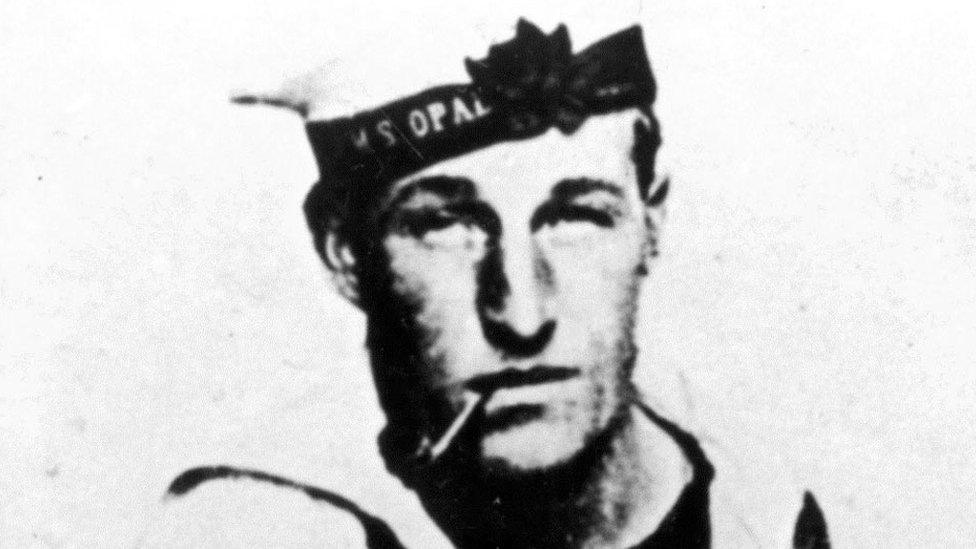
Opal gunner William Sissons was the only survivor from the two warships
Men and boys who died when two destroyers on night patrol off Orkney during World War One ran aground in blizzard conditions have been commemorated.
There were 189 on board HMS Opal and HMS Narborough as they set out to hunt German warships suspected of laying mines on the Scottish coast.
Just one man - William Sissons - survived.
It took two days for him to be rescued from the sea ledge where he sheltered.
Scapa Flow, a protected bay in the archipelago, was the base for the British Navy's Grand Fleet in World War One.
On 12 January 1918, Opal joined its sister ship Narborough and the light cruiser Boadicea in looking for German ships and submarines laying mines.
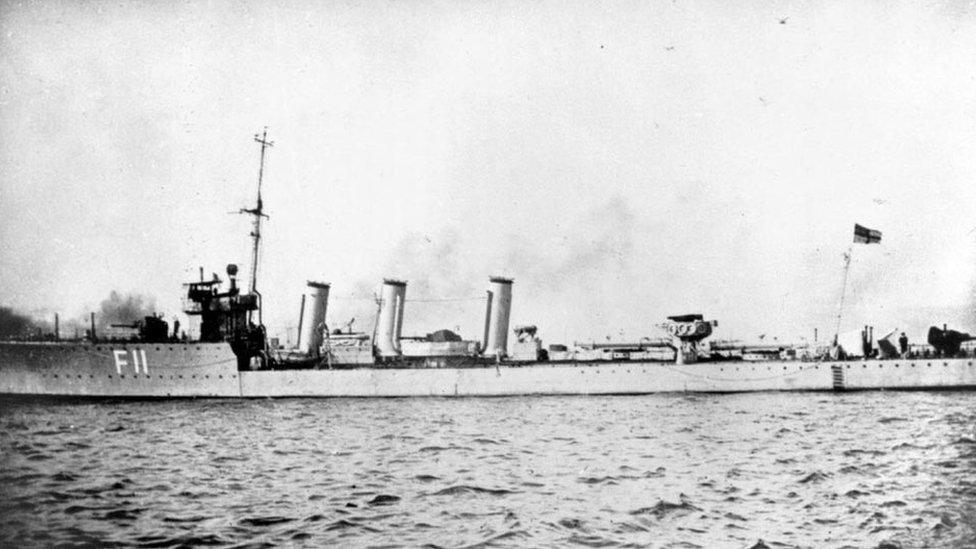
HMS Narborough ran aground off South Ronaldsay
During the evening, weather conditions worsened and the warships were ordered to return to Scapa Flow.
However, as a blizzard set in and with visibility near zero, they ran on to rocks off the east coast of South Ronaldsay.
As the ships broke and were swallowed by the sea many of the crew were trapped and others were swept away.
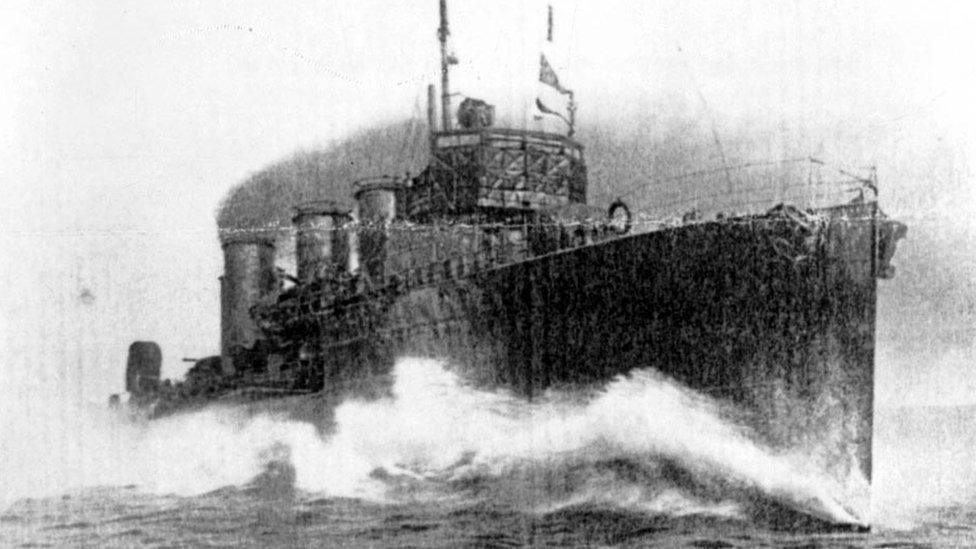
HMS Opal also fell victim to the weather
Most of the bodies were never found but 55 crew were later buried at the Commonwealth War Graves Commission Royal Naval Cemetery at Lyness on the island of Hoy.
In a chance discovery, the gold engagement ring of one of the sailors who died was found on the seabed 89 years after the ships ran aground, external.
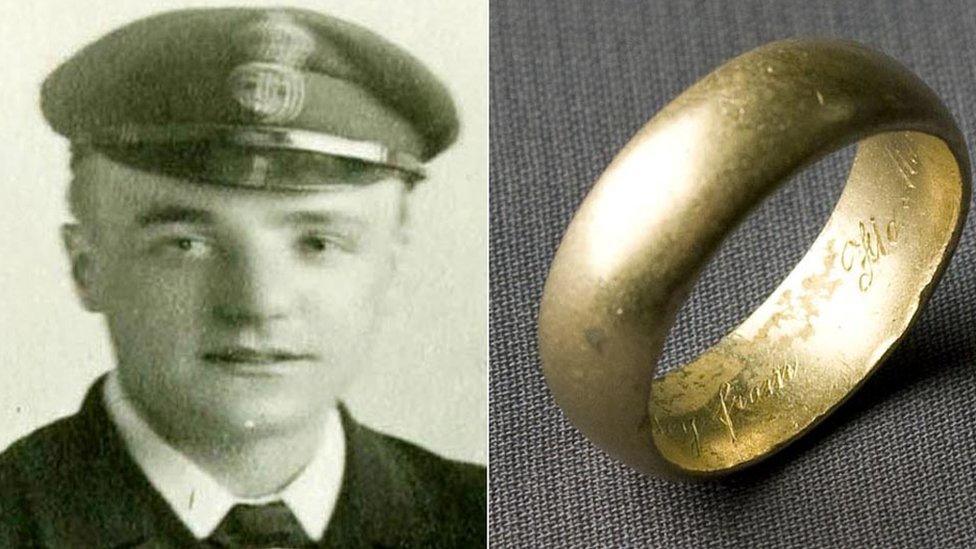
Stanley Cubiss died but his ring was found 89 years later
The ring, engraved "to Stanley from Flo, 6 March 1916", was found by divers in 2007.
Stanley Cubiss, 25, had been on board HMS Opal and had married his sweetheart Florence in June 1917.
The ring was returned to the sailor's family in North Yorkshire after the divers did some detective work.
They have now donated it to the Scapa Flow Visitor Centre and Museum.
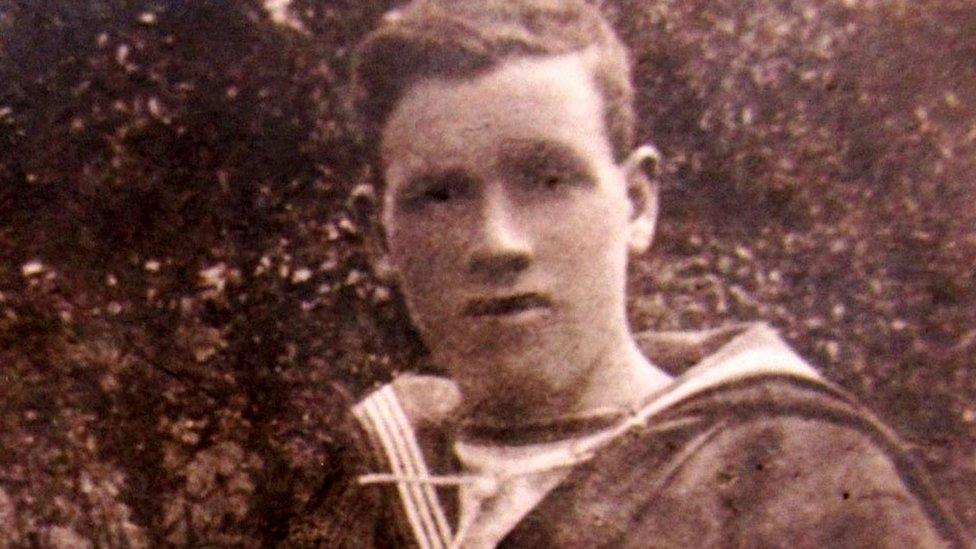
Robert Lawson also lost his life
Another of the lost crew, Robert Lawson, died on board HMS Narborough.
His great nephew Bob Jack, of Corby in Northamptonshire, told BBC Radio Orkney: "Although the gravestone says he was 20 he was actually only 19.
"Such a young age, and a life that was wiped out all of a sudden along with his shipmates.
"We can blame speed as a factor or poor navigation but we just don't know.
"We have to remember that it was a blinding snow storm, heavy seas, and of course they didn't have the benefits of radar or GPS technology."
Mr Jack said it was wonderful that the people of Orkney continued to honour the memory of the men.
'Mercy of the sea'
Historians Brian Budge and Andrew Hollinrake have compiled a Book of Remembrance, listing all 188 crew who died.
Mr Budge said: "William Sissons survived because he found a ledge where he could get some shelter out of the wind.
"He poured in debris to get the wind off him and spent two nights and a day before he was found."
Mr Sissons had managed to get a lifebelt before the ship broke up and he was forced to jump, trusting himself to the "mercy of the sea".
He was able to clamber on to a rock before he fell unconscious.
When he came around in the early hours of Sunday morning his hands and feet were numb with the cold but he managed to drag himself as high up on the sea ledge as he could.
He had to wait all day on Sunday and into Monday morning before he was rescued by a trawler and taken to a hospital ship.
The gunner spent three months in hospital before he was discharged.
'Cruel mistress'
Lieutenant Commander Garth Atkinson, from Naval Regional Command, Scotland and Northern Ireland, said: "Whatever conflict it is, there is the enemy that you have but there's always the shared enemy of the sea - a cruel mistress.
"When the ships ran aground the prevailing weather conditions meant there was very little hope, unfortunately, for the sailors.
"Except for the one sole survivor, who survived for two days at the foot of the cliff, before he was picked up by a fishing boat."
A wreath was laid on Friday at the Opal and Narborough memorial, which was created in 1993 at Windwick Bay.
Graeme Horne, from Orkney Islands Council, who was involved in organising the centenary events, said: "It's a story that probably a lot of local people in Orkney, and even in South Ronaldsay, are not really very aware of, despite the fact of the huge loss of life that there was.
"So we feel it's really important that this does get the commemoration that it deserves."